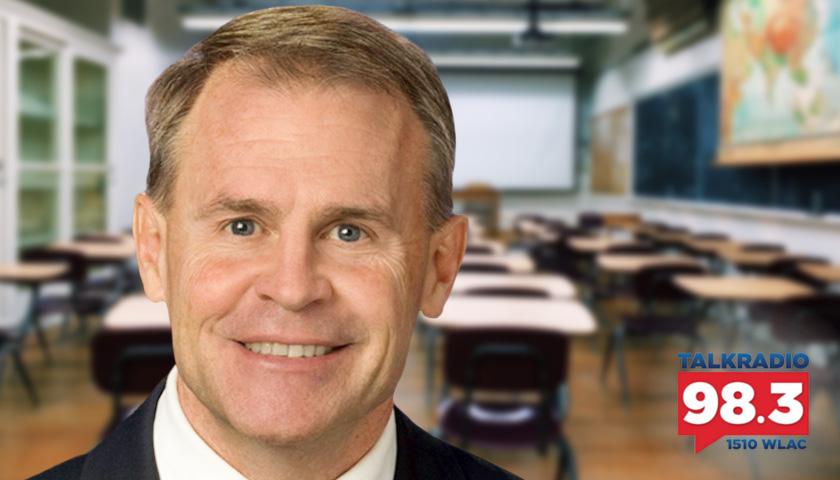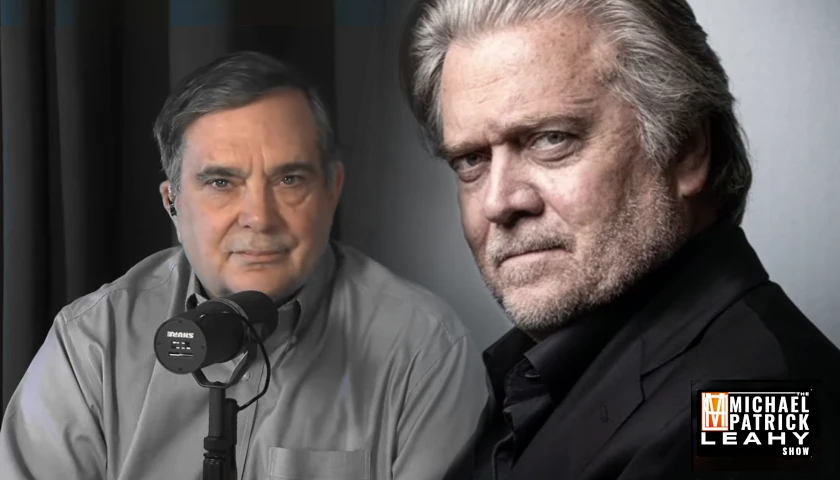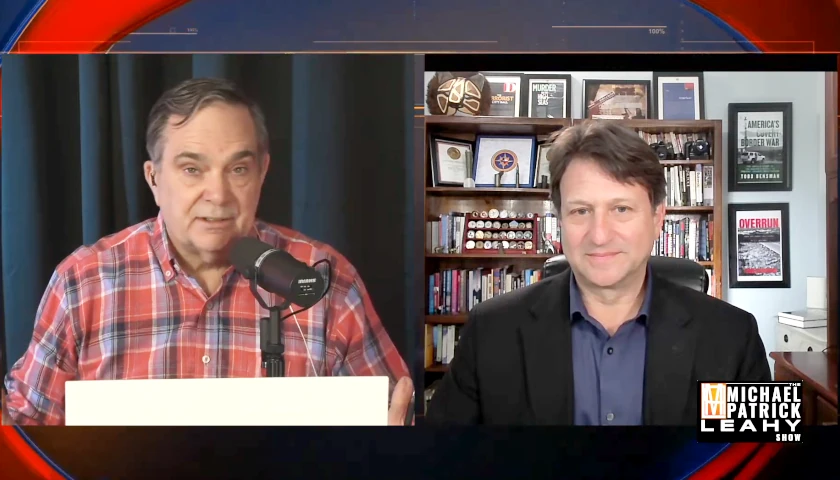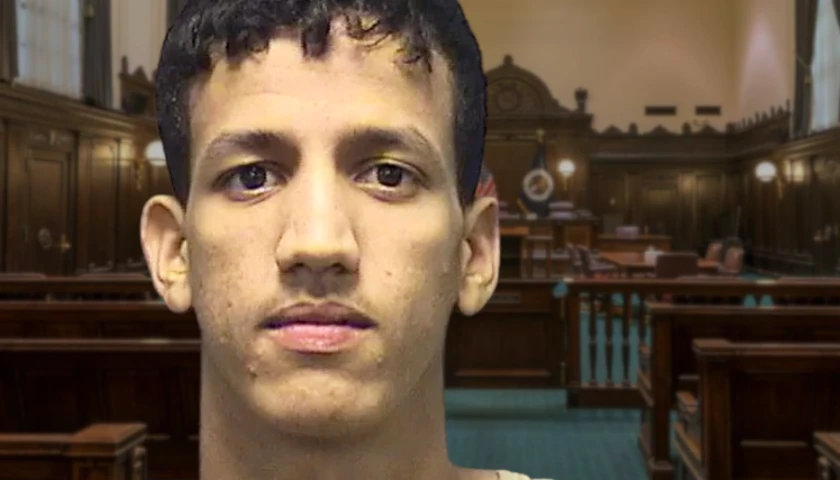Live from Music Row, Tuesday morning on The Tennessee Star Report with Michael Patrick Leahy – broadcast on Nashville’s Talk Radio 98.3 and 1510 WLAC weekdays from 5:00 a.m. to 8:00 a.m. – host Leahy welcomed former Tennessee State Representative Bill Dunn in studio to talk about his work at the Tennessee Department of Education and school choice.
Leahy: In studio with us, former State Representative Bill Dunn now working for the Tennessee Department of Education. So you get elected in 1994, and you serve until 2020. That’s a long time in the state house of representatives. And you were the interim speaker for three weeks, and nothing bad happened. Congratulations.
Dunn: Nothing bad happened.
Leahy: Very good. You’re ready to retire. What happens? Why are you not on your farm hanging out and watching the grandkid?
Dunn: I call it a farm, but it’s in Claybourn County, and it’s a lot of rocky ridges, so I basically grow rocks.
Leahy: That sounds a lot like the farm that my great-great-grandfather had in Hemmingford, Quebec, when he came over from Ireland—lots of rocks.
Dunn: Yes. And we, as kids, we’d get five-gallon pails, move all the rocks out, and it seemed like next spring they’d all walk back into the garden. But anyways, I was going to go up there and at the time, and you’ll probably remember these days, the Department of Education and the legislature, were not seeing eye to eye.
There were a lot of accusations flying around. They didn’t feel like communication was happening. And so the governor’s folks called me and said, would you be willing to come back with the Department of Education and find out what’s going on and see how we can move forward on this?
I knew my soft spot was kids. I’ve always been interested in education. As I mentioned, I was a 4-H agent with the agricultural extension service. I changed my plans. Came back and wasn’t sure exactly what I would find. Of course, Commissioner Penny Schwinn was there, and we got to work.
What was so amazing is that the people I worked with, I mean, they’re all type A workers, and they walk around with their laptops open, they multitask and stuff. And I’m probably the least intelligent person there. But I understood how the legislature worked. I had good relationships.
Leahy: You’ve been there for 26 years.
Dunn: Right. And I think I worked with people well because you try to find solutions, and you realize you’ve got to have 50 votes in the house, 17 in the senate, and your enemy today might be your friend tomorrow might be the 50th vote you need. And we worked on communication and all. I’m blessed to have worked with Penny Schwinn.
She’s high energy, works late at night. The best thing was, it was always about the kids. We would be in meetings and people would get off topic about stuff and she said, yes, but what’s best for kids? And great things have happened in Tennessee. In fact, we brag a lot about Tennessee having low taxes and people moving here and stuff. But nationwide people look at Tennessee and what we’ve done.
Yesterday I was reading something about Delaware having adopted an apprentice program for teachers and I just laugh. Tennessee was the first one to do that. So under Governor Lee’s leadership and Penny Schwinn’s leadership, we’ve started to grow our own program, which is the app apprenticeship, the first one in the nation. We changed the funding formula, which for 20 years, and shame on me, I was there and I never could figure out how to fix that stupid formula because nobody understood it.
But Commissioner Schwinn looked at it and said really, we don’t fix this formula. We come up with one that’s based on what’s best for kids, and the money is drawn according to what the kids are doing. Of course, we finally got school choice in Tennessee.
Leahy: And by the way, you introduced that bill, didn’t you?
Dunn: I carried the school choice bill when Bill Haslam was governor when he tried it the first time, and then I carried it for Governor Lee and when it actually passed.
Leahy: And it’s been implemented. And if you could describe the bill that you passed, that finally got implemented after a couple of court challenges. Tell us what that bill has done and in which counties does it apply currently?
Dunn: It applies in Memphis and Nashville, and then we just passed the law to expand it to Chattanooga. But I’m from Knoxville. I’d like for it to get there.
Leahy: It didn’t make it to Knoxville?
Dunn: We need to talk to our Republican friends and say, if you’re really a conservative, this is the market system working. It’s really nothing new. When you look at the Hope Scholarship, which everybody’s for, you give the money to a family, and they decide whether they go to a public or private college or university, and it works great.
And so I think the tide has turned. I was really happy with the vote that we got, at least to add Chattanooga to it. And now we’re going to start having families that come forward and talk about how it changed their child’s life.
Leahy: I noticed in the state of Indiana they started it earlier and almost universally, that they are going to have in 2023, like 55,000 kids participating. I think we’re still just down at 500 here.
Where do you see that program going in Tennessee over the next couple of years? Do you see it applying to all counties or do you see it applying to some more? What do you think’s going to happen with it?
Dunn: It depends on who’s elected. And obviously, we’ve seen that now there is a majority in the Senate in the House that is willing to expand it. So we’ll see how that goes. One of the beauties of school choice is that in every state where they have done this, it has been shown that the public schools actually improve because of the competition.
So if you’re looking at effective and efficient use of dollars, even if it’s only 400 or 500 kids who take advantage of it, that’s not a whole lot of money. But yet, if the public schools all improve, then you can have 10s of 1,000s of kids get a better education just because people are competing.
Leahy: How many more counties do you think will end up adding here?
Dunn: We’ll see who files it. But anyways, in the past four years, it’s amazing what the department has done. Literacy 360, which other states are copying. It makes you feel good when somebody calls you and says Governor Youngin wanted us to call and find out what you all are doing in Tennessee because we want to do it. So people look to us as being a leader in education.
Leahy: And yet the actual performance in terms of literacy and math numeracy has been not that great in Tennessee over the past several years.
Dunn: Yes. The Literacy 360 has been implemented for a couple of years now. Remember, we had a pandemic, which kind of knocked everybody else back. But yes, there needs to be results. When it comes to math, I know Chairman Cepicky, who you know, rather he wants that to be the next frontier.
And in fact, I spoke with him yesterday and said that I’ve already mentioned to the new commissioner who’s coming in that she needs to understand that the legislature really wants to do something with math. So he was pleased to know that’s already on her radar.
Leahy: She starts July the first.
Dunn: Yes.
Leahy: And her name is Lizzette Gonzalez Reynolds. And she’s been in education policy for some time. Give us a sense of what you think her big agenda items would be in her first year or so.
Listen to today’s show highlights, including this interview:
– – –
Tune in weekdays from 5:00 – 8:00 a.m. to The Tennessee Star Report with Michael Patrick Leahy on Talk Radio 98.3 FM WLAC 1510. Listen online at iHeart Radio.
Photo “Bill Dunn” by Tennessee General Assembly. CC BY-SA 4.0. Background Photo “Classroom” by Wokandapix.




